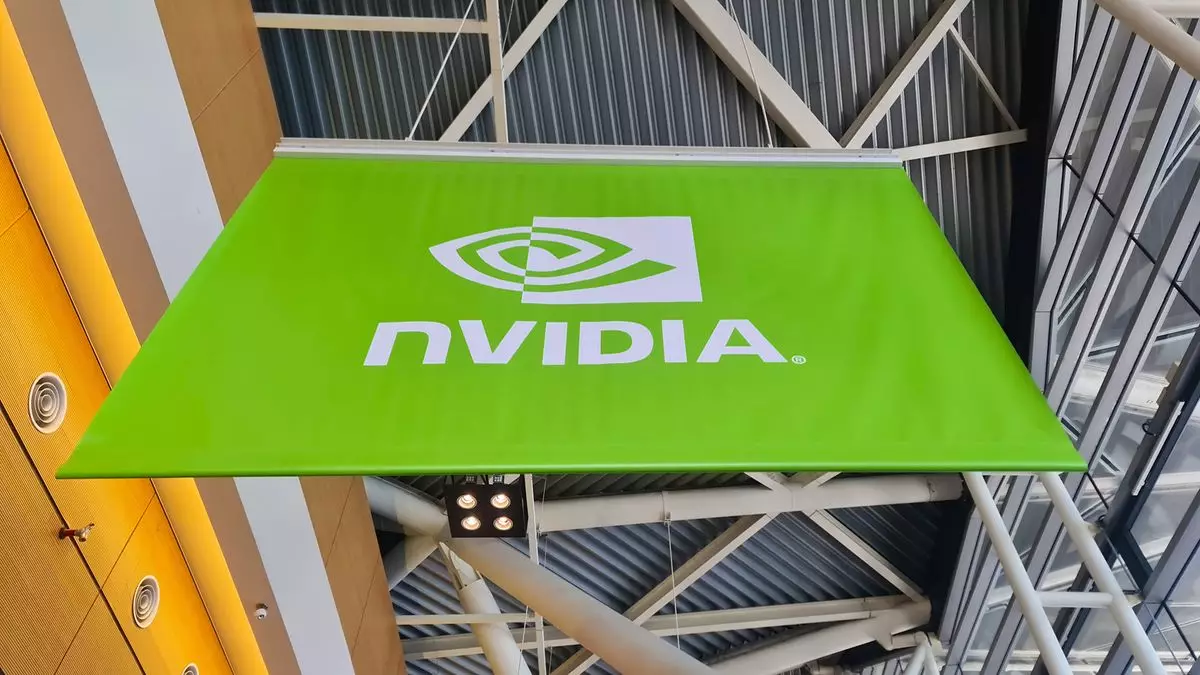The tech industry, particularly in the realm of artificial intelligence (AI), has witnessed a surge in legal confrontations that have become almost emblematic of corporate culture. As companies like Nvidia push the boundaries of innovation and profit, they also find themselves contending with significant legal challenges. The recent developments surrounding Nvidia highlight the precarious balance between corporate growth and regulatory scrutiny.
As AI technologies evolve, so do the complexities of their market dynamics. Nvidia, a leader in AI data center technology, has been under the magnifying glass due to allegations tied to its earnings tied to the cryptocurrency market. With the industry’s rapid transformation, investors and regulators are increasingly vigilant, aiming to hold companies accountable for transparency. Legal cases against major tech firms have not only become commonplace but serve as a reminder of the potential pitfalls associated with unbridled growth in a burgeoning sector.
The case against Nvidia stems from a class action lawsuit initiated in 2018, which contends that the company misled investors regarding its revenue’s reliance on the volatile cryptocurrency market. The plaintiffs argue that Nvidia’s downplaying of this dependence constitutes a violation of the 1934 Securities Exchange Act. While the lawsuit was initially dismissed by a federal judge, the 9th Circuit Court of Appeals revived it, leading Nvidia to seek intervention from the Supreme Court.
Recently, the U.S. Supreme Court made a pivotal decision to allow this lawsuit to proceed, rejecting Nvidia’s appeal without offering specific explanations. This judgment underscores a significant principle in legal proceedings: the evaluation of evidence is best left to the trial phase rather than being a prerequisite for the initial filing of a lawsuit. Justice Ketanji Brown Jackson articulated this sentiment, emphasizing that requiring plaintiffs to possess substantial evidence before initiating litigation hampers access to justice.
This ruling represents a critical moment not just for Nvidia, but for the tech industry at large. It illustrates the judiciary’s willingness to permit cases to unfold rather than prematurely dismiss them based on evidentiary concerns. Such decisions can potentially alter the landscape of securities litigation, particularly in industries as volatile and fast-paced as technology and finance.
Nvidia’s financial heft, bolstered by its dominant position in AI markets, raises questions about the real impact of potential legal losses. With the company having already settled a $5.5 million payout to the Securities and Exchange Commission over similar disclosures, the ongoing lawsuit risks becoming yet another line item in its financial ledger. Should the plaintiffs prevail, the compensation sought could be significant, yet in the grand scheme of Nvidia’s revenue, it may represent merely a drop in the bucket.
This trend of massive tech companies absorbing legal costs without significant operational disruption is disconcerting in its implications. It suggests that for these conglomerates, the risk of legal action—no matter how impactful it may seem—can be managed as a routine business expense. The narrative of “legal losses as a small candy taken from a large basket” alludes to a troubling reality where accountability is diluted by corporate resources and influence.
As the tech sector continues to experience accelerated growth, the slew of legal challenges is likely to persist. Investors and consumers alike are increasingly demanding transparency and accountability from corporations. The Nvidia case serves as a microcosm of this broader movement, illustrating the friction between corporate ambitions and the ethical responsibilities that accompany them.
For the ultimate outcome of Nvidia’s lawsuit, only time will tell. However, the Supreme Court’s decision to let the case proceed signifies a renewed commitment to holding influential corporations accountable. As other tech giants navigate their paths forward, the outcomes of these legal battles may very well set important precedents that redefine the obligations of corporate America in a rapidly evolving technological landscape.

